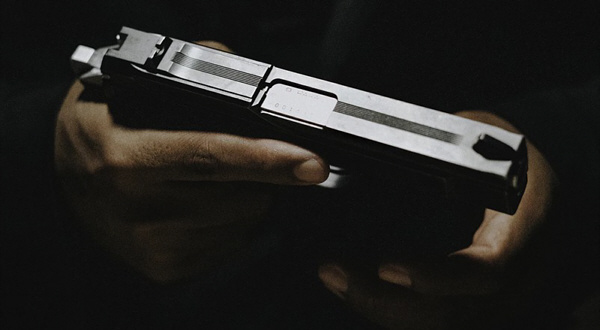

Self-Defense
vs.
Negligent Discharge

By William Starnes. April 23, 2025
Article Source
Every negligent discharge is a result of someone violating the four rules of gun safety:
- 1. Treat every gun as if it is loaded.
- 2. Never let the muzzle cover anything you're not willing to destroy.
- 3. Keep your finger off of the trigger and out of the trigger guard until you intend to fire.
- 4. Be sure of your target and what lies beyond it.
These rules are fundamental and must be followed WITHOUT EXCEPTION! This article isn't about the rules of gun safety. Instead, it's a look into the events that typically follow a (claimed) negligent discharge where injury or death has occurred.

Defending Yourself
We arm ourselves against the possibility of finding ourselves in a situation where we may be forced to defend ourselves, our loved ones or even a total stranger against a deranged person intent on causing harm to others. It could be that we've interrupted an armed robbery, or it could be someone who has decided to go on a killing rampage with a mass-shooting event. We've trained how to respond to the threat. Few of us, however, have thought through the legal ramifications that come into play afterward.
I'm not a lawyer, and this isn't legal advice. Rather, it's a cursory glance into one of the possible situations following such an event. Instead of facing murder, you might face manslaughter charges based on negligence.
Let's assume you've successfully defended yourself or others and are now facing first-degree murder charges brought by an over-eager prosecutor trying to make a name for himself. The first line of defense is the legal claim of self-defense — meaning you "intentionally" shot someone, but you were legally permitted to do so based on the situation. If you substantiate the five elements of self-defense, you'll beat any criminal charges brought against you for killing or harming another. Those elements are innocence, imminence, reasonableness, avoidance (if required) and proportionality. But if the prosecutor can claim negligence, as a shrewd prosecutor might, self-defense is no longer available as a defensive option. In other words, self- defense is an intentional act; negligence is a "careless disregard for the safety and health of others." Rather than having to argue against these five elements, the prosecutor may choose this easier route.
Gun Modifications
I'm certain you've read the admonitions against making modifications to a carry gun. This is the number-one reason against it. If you've worked on your own gun and are not a certified gunsmith, the argument can be made that you made the gun unsafe and more likely to have an accidental discharge. If you've lightened the trigger beyond what the manufacturer specifies, you've again arguably made the firearm more dangerous. These can lend credence to the prosecution's argument for negligence.
But it's not just criminal charges you must worry about. Charges based on negligence can open the door for civil litigation against you as well. Thus, everything you own can be at risk. It's bad enough to go to jail. It's even worse to also lose everything you and your family have worked for your entire life.
All of this can be scary to think about, but we must think about it because it goes along with the decision to carry a gun. Just like practicing unarmed defense, reload drills and all the other skills you need to know, you also need to understand the basic legal concepts surrounding self-defense. It's not as easy as just claiming you were in fear for your life — despite what many people believe.
Criminal Negligence
There's one other aspect of negligence that needs to be mentioned based on what is happening across the nation. You can be held criminally negligent even if you are not the one using your gun. Gun owners are being prosecuted after shooting incidents committed by their relatives if firearms are not properly secured from unauthorized people. I have mixed emotions about this. It depends on the situation. Still, prosecutors are public officials and are subject to the whims of their communities. It's best to properly secure your guns to prevent such possibilities. Perhaps it's time we add a fifth rule to our list:
5. Ensure your guns are always secured against unauthorized use.
I hope and pray you never find yourself in any of the situations talked about. But in today's increasingly activist and litigious society, it's up to us to protect ourselves after the worst-case scenario occurs. Be intentional and ensure it's documented. "I had no choice but to defend myself" is far superior to "it was an accident." The wisest choice, however, is not to say anything at all before consulting with an attorney regardless of how clear the situation seems.
![]()
























